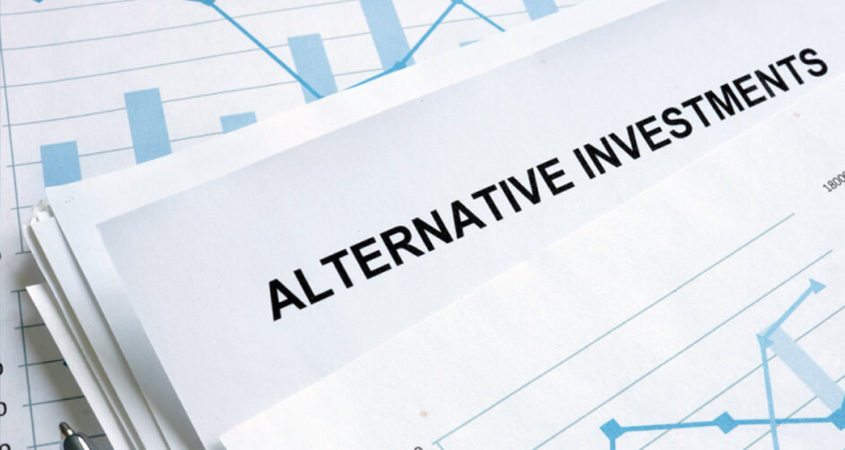Explore Alternative Investment Funds with InCred Premier
Expand your investment portfolio by incorporating Alternative Investment Funds (AIFs) that offer access to unconventional and distinctive investment prospects. AIFs encompass a diverse range of sectors such as real estate, private equity, infrastructure, and venture capital, presenting the possibility of earning appealing returns that consider the associated risks.


What are Alternative Investment Funds?
Alternative Investment Funds (AIF), are privately pooled investment funds that operate outside of traditional investment vehicles like mutual funds. They cater to sophisticated investors and offer alternative investment opportunities beyond the usual equity and debt instruments. AIFs could include private equity funds, real estate funds, hedge funds, venture capital funds, and infrastructure funds. These funds are regulated by the Securities and Exchange Board of India (SEBI) and are subject to certain investment restrictions and disclosure requirements.
Types of AIF
In India, Alternate Investment Funds (AIFs) are classified into three categories
Category 1 AIFs focus on investing in small and medium enterprises (SMEs), start-ups, and new economically viable businesses that show high growth potential. This category includes the following types of AIFs:
-
Venture Capital Funds (VCF)
These funds provide financing to new-age entrepreneurial firms during their initial stages and invest in start-ups with significant growth prospects.
-
Angel Funds
Angel funds invest in budding start-ups that are not receiving funding from VCFs and aim to bring early business management experience along with their investment.
-
Infrastructure Funds
These funds invest in infrastructure companies involved in railway construction, port construction, etc. They suit investors who are bullish on infrastructure development.
-
Social Venture Funds
These funds invest in socially responsible businesses and aim to generate decent returns for investors while contributing to social causes.
Category 2 AIFs encompass the following types of funds:
-
Private Equity Funds
These funds invest in unlisted private companies that face difficulty in raising funds through equity and debt instruments. They generally have a lock-in period ranging from 4 to 7 years.
-
Debt Funds
Debt funds primarily invest in debt securities of unlisted companies that follow good corporate governance models and exhibit high growth potential. These funds are considered riskier for conservative investors due to the low credit rating of these companies. The accumulated money in debt funds cannot be utilized to extend loans.
-
Fund of Funds
Fund of Funds do not have an investment portfolio but concentrate on investing in different AIFs, providing investors with diversification and exposure to multiple AIFs.
Category 3 AIFs include the following types of funds:
-
Private Investment in Public Equity (PIPE) Funds
PIPE funds invest in shares of publicly traded companies at discounted prices, offering a more convenient investment option than secondary issues.
-
Hedge Funds
Hedge funds pool money from accredited investors and institutions, investing in domestic and international debt and equity markets. They adopt an aggressive investment strategy to generate returns for investors, but can be expensive in terms of the asset management fees charged by fund managers.
Begin your investment journey with InCred Premier today!
Why invest in AIFs?
-

Diversification
By investing in AIFs, investors can gain exposure to alternative strategies, sectors, or geographic regions that may have lower correlation with traditional investments.
-

Higher Potential Returns
These funds often employ specialized investment strategies or have access to unique investment opportunities that can generate alpha (excess returns).
-

Access to Expert Management
AIFs are typically managed by professional fund managers or investment teams with specialized expertise in their respective strategies.
Frequently Asked Questions
Insights about the market.
Hear What Our
Clients Have To Say
Start your investment journey with InCred Premier today












